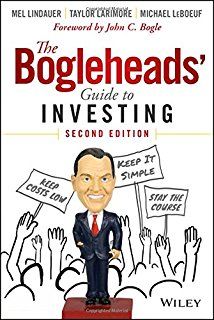Since my previous posts, quite a few people asked me a basic plan which can be followed, here it is.
The items are ordered from first thing to be done to the last thing which can be done (assuming money is still left).
Emergency savings Put 6 months worth of expenses in a Series I-Bonds (sold by treasurydirect.gov) - they try to match inflation rates (but nothing more than that) and can be sold after holding them for at least a year. The idea behind this is to minimize downsides in case of a major market crash. Also, I-Bonds are not counted towards state taxes and a max of 10, 000$ can be purchased in a single year (per SSN). Another simpler approach is to put money in high yield savings account like Barclays Savings or American Express Savings, of course, there is no rate guarantee and rate do fluctuate (usually go down) over time. Max out pre-tax 401K Assuming there is an employer match or if the person can convert it into Roth IRA. Otherwise, don’t do it. Backdoor Roth IRA Invest 5, 500 $ in traditional IRA, hold that for a few weeks and then convert it into Roth IRA and let the money grow tax-free. REITs and Preferred’s Investing in dividend paying (or “fixed income” as they are called) equities is not the optimal strategy for someone who is working full time but I think its psychologically beneficial to get regular dividends especially when market tanks down. An approach for that is to first figure out the amount of monthly dividend one wants to receive and then invest accordingly. For example, to get 100$ pre-tax a month in dividends from saying HSBC preferred shares (HCS) which has an 8% annual yield, the total investment has to be 15, 000 $. A caveat here, dividends coming from preferred are qualified and taxed at a lower rate while dividends from REITs are not, they are considered a regular income. The trick is to hold REIT in Roth IRA account where the income becomes tax-free. Municipal Bonds(Disclaimer: I have not tried these) Municipal bonds are usually issued for long-term (30 years) and the dividends they pay are tax-free (no state or federal taxes) provided the person is resident of that state. Rich people love these especially because the dividends are tax-free and there is no risk (except for municipality filing bankruptcy) if they are held till maturity. If they are not held till maturity there is in interest rate risk where bonds can go down in value if the interest rate goes up. So, the current market value of the bond will go down and vice versa. In the current scenario (2013), interest rates are low enough that they can only go up, so, investing in these does not make sense unless the person is planning to hold them till maturity. Three-fund portfolio Rest of the money should go into a three fund portfolio ( discussed earlier).
